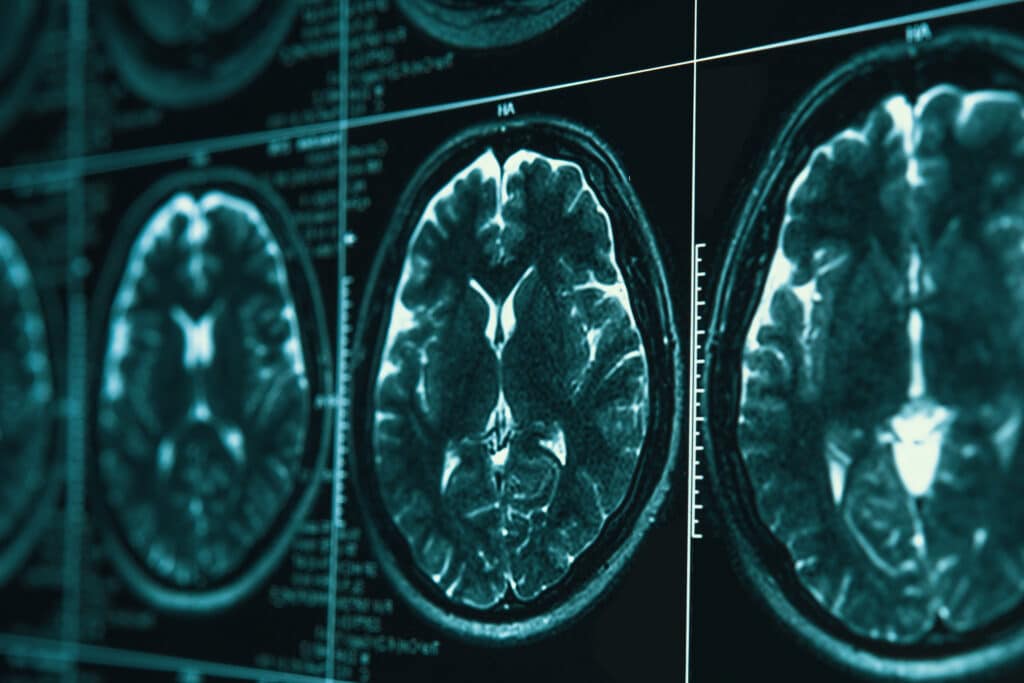By Megan McCarthy

Neuroimaging is changing the way clinicians study and treat dementia, and the University of Pennsylvania is now better positioned to train the next generation of researchers in this field.
Corey McMillan, PhD, research director of the Penn Frontotemporal Degeneration Center and principle investigator (PI) of the BiND Lab, will be the program director of a newly funded T32 Predoctoral and Postdoctoral Training Program on Translational Neuroimaging in Alzheimer’s Disease and Related Dementia (ADRD) to support five trainees. Alongside Dr. McMillan, co-directors and co-PIs include John Detre, MD, and Murray Grossman, MD, EdD.
A two-year fellowship, this is designed for trainees to develop a research career focused on neuroimaging in ADRD.
“Neuroimaging has become a leading strategy used for translational research in Alzheimer’s disease and related dementias (ADRD) that can be used to improve diagnosis, prognosis, and evaluating efficacy of clinical trials,” said Dr. McMillan, who also co-leads the Genomics Core of the Penn Alzheimer’s Disease Research Center (ADRC).
This program directly addresses key aims of the National Alzheimer’s Project Act (NAPA) 2019 Update, which highlighted the need for enhanced training in common mechanisms of neurodegeneration.
“Ultimately, we hope trainees will develop a strong foundation in neuroimaging methods combined with clinical and biological knowledge of ADRD so that they can launch a career integrating the two,” said Dr. McMillan.
The fellowship has three research specializations: Imaging Disease Mechanisms, Biomarkers and Neuroimaging Trials, and Statistical and Computational Approaches.
Beyond these main disciplines, there are myriad of opportunities built in for fellows.
Specifically, trainees will attend seminar series and workshops on responsible conduct of research (RCR), journal clubs, and design a two-year mentored research project.
The program will also invest in career development, emphasizing grant writing, paper authorship, and networking.
“By leveraging the key strengths of Penn’s vibrant degenerative disease research community, this program aims to produce the next generation of leading scientists in the field,” said Roy Hamilton, MD, MS. Dr. Hamilton, a neurologist and director of the BrainSTIM Center, co-leads the Training Core of the Penn ADRC.
The foundation of this program draws from neuroscience, biostatistics, and bioengineering.
“This training program centers around our philosophy that neuroimaging is an inherently interdisciplinary field that requires training across several domains,” said Dr. McMillan.
The fellowship has allotted three spaces for predoctoral PhD students and two for postdoctoral fellows (PhD or MD/PhD). It will primarily draw from neuroscience, biostatistics and biomedical engineering graduate groups at Penn. Combined with the Clark Scholar Program, these positions offer a broad range of ADRD research opportunities at the Penn Memory Center (PMC).
“Penn is a global leader in neurodegenerative disease research. It is home to foundational mechanistic science, groundbreaking imaging and biomarker research, and forward-looking discoveries that employ computational and statistical approaches,” said Dr. Hamilton.